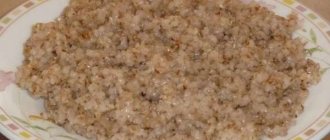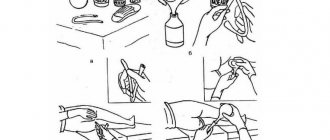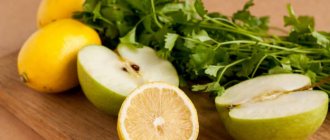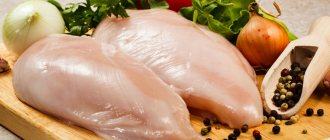Many have heard about the unique effect of therapeutic fasting on our body. Correctly carrying out a short hunger strike heals the body and renews the mind.
But you need to responsibly prepare for a seven-day therapeutic fasting on water; now we will tell you about all the nuances that are inherent in fasting on water.
And now let's get to the point. What conclusions did I draw after three days of hunger strike:
- To fast properly, you need to be fat. The more ballast, the better. Without receiving food, the body itself will absorb the accumulated fat for the benefit of the carrier.
- For those who lift bags or lay sleepers, fasting will definitely harm them. On the second day, the body cannot withstand even light loads (again, provided that you are thin). Therefore, such a diet is definitely not suitable for physical exercise.
- A hunger strike forces the body to work according to the principle of inverse proportion. By constantly stuffing food into yourself, you get a lot of energy, but you spend it on all sorts of nonsense, like YouTube videos. When you refuse food, your energy becomes significantly less, but all of it goes towards completing the most important and pressing tasks. (What can be called an increase in performance)
- Lack of energy also causes you to not think about more than one problem at a time. Achieving goals is sequential, not parallel, and this is good.
- If you decide to fast, you should first soberly assess your own strength. For Jeff Wu, 7 days may not have been a serious challenge, but with less weight a person may have difficulties on the third day. Therefore, first step on the scale and think about what period is most acceptable for you.
Exit from hunger strike
Three days is a long enough period during which you can forget about the taste of your favorite food. What can we say about our body! This is real stress for him, and, of course, he will want to make up for lost time as quickly as possible by pouncing on previously forbidden foods. Don't let your instincts overwhelm your common sense, and follow these rules:
- The first thing you can touch should be vegetables, fruits and juices. Even better are fruit and vegetable smoothies. We recommend a salad of carrots and apples, grated on a coarse grater and dressed with oil;
- Meat, eggs, milk and cheese are still not allowed;
- End your three-day strike in the evening.
And finally, the most difficult thing - no overeating. Coping with appetite even in normal times is backbreaking work, let alone such stress. However, your results and health depend on this, so try not to break down.
Preparing for fasting
It is necessary to prepare for a three-day fast a week in advance. There are a few simple rules that you must follow:
- We exclude sweets, fatty foods, flour, pickled foods, smoked foods, baked goods and sweets from the diet.
- We give preference to light and healthy foods: vegetables, fruits, cereals.
- For three days we reduce the portion sizes.
- We drink 1.5-2 liters of liquid daily. It is important to train yourself to drink constantly.
- We are planning a body cleanse for the weekend. For example, the first day of fasting may be on Friday, and Saturday and Sunday are the end of the program. This is necessary to protect yourself in case of possible ailments.
- During the fasting period and during preparation, we exclude any physical activity.
- The last meal before fasting is the lightest. You can eat one apple or drink a glass of kefir or herbal tea.
Juice fasting
A more gentle method of healing is juice fasting, when, unlike “traditional” fasting, the body receives many useful substances. Therefore, it is easier to carry. Juices are easily digestible, so the digestive system rests quite successfully during the period when juice abstinence from food is practiced.
Using this method, you can not only effectively lose weight, but also improve your body health. Consuming juices makes it possible to tone the intestinal mucosa, regenerate damaged cells, remove toxins , and improve the functioning of the excretory system.
During this period, it is recommended to consume cabbage, beet, and carrot juices. But you also need to include fresh berry, fruit and other vegetable juices in your diet. If such a drink is too concentrated, it is better to dilute it with water. You can also mix juices. If you are thirsty, you can drink some water.
You can fast on juices for 2 to 5 days, but it is better to start with one day of fasting.
As with normal fasting, you should enter the fasting process correctly by eating light food for several days.
The output must also be correct. Under no circumstances should you overload the digestive system. It is better to start with soft fruits, then switch to boiled vegetables, and later add liquid porridge to the menu. You can return to your normal diet after a few days.
Water fasting: reviews and results
Most people who talk about their experience of fasting note a very important point: before fasting, it is important to study the essence of this method, the rules of its practice, as well as determine goals for yourself and tune in to the process. If you read reviews about one-day fasting on water, then those for whom this method has already become part of their life rhythm have actually managed to significantly lose weight and improve their health. If you carry out a one-day abstinence from food regularly - once every 2-3 weeks, then gradually the body adjusts to such a “schedule”, and thanks to this the person begins to eat less, which leads to excess weight . The most important advantage of this technique is that one day of fasting is not dangerous to health.
You can also find many reviews about juice fasting, which is often practiced for 3 days or longer. This technique has also helped many. But some reviews say that hunger for juices provoked a sharp deterioration in health and digestive problems. This indicates that this technique is only suitable for those who do not have health problems.
You can also find reviews from those who fasted at home for 7 days or 10 days. But, despite some enthusiastic descriptions of sensations and results, it is important to realize that long-term fasting is only possible in a hospital setting with constant supervision by specialists.
If you analyze individual reviews that describe the results of 21 days of abstinence from food, you may mistakenly believe that this is a simple process during which you can get rid of 10 or more kilograms of excess weight and feel great. But in fact, this is an extremely dangerous technique, and you cannot be guided by reviews in this case.
It is important to understand that each specific case requires only an individual approach, and one should gradually get used to regular “sessions” of hunger, starting with the simplest.
We weigh the pros and cons
The benefits and harms of this method balance on the brink, and it is very difficult to say which is greater - the pros or cons. Let's try to figure it out.
First you need to find out whether you can even fast. So, if you have such features and diseases, you will have to forget about the method:
- Cardiovascular diseases;
- Pregnancy and breastfeeding;
- Undergoing treatment;
- Diabetes;
- Anorexia or low body mass ratio;
- Exacerbation of chronic diseases;
- Gallstones;
- Gastrointestinal disorders;
- Stomach ulcer.

If you have none of the above, you are ready to start fasting.
Unpleasant consequences that you need to be prepared for
Since you have decided to take such drastic measures, then do not be surprised by the unexpected surprises that will accompany you throughout the three days:
- Dizziness;
- Irritability;
- Bad mood;
- Nausea and rumbling in the stomach;
- Plaque on teeth and bad breath;
- Weakness.
As you can see, you should not plan a hunger strike on the eve of a wedding, exams, competitions or other important events, otherwise you will face failure and a spoiled mood.
What to do these days? First, choose the right time: let it be a weekend or vacation, during which no one will disturb you.

If you can't indulge in food, find pleasure in something else. Read a book, watch your favorite movie or take a fragrant bath - in general, pamper yourself by doing nothing.
Another serious problem is constant thoughts about food. Yes, they will follow you everywhere: you will dream of cakes, imagine cutlets and imagine croissants. All this madness can make you lose your mind, which will inevitably lead to a breakdown and an eating disorder.
To drive away forbidden thoughts to hell, occupy all your free time with some exciting activity that you will get involved in and forget about everything in the world. Drawing, knitting, board games or an interesting TV series will pull you out of reality and three painful days will fly by in an instant.
Although you will have to forget about sports during a hunger strike, do not rush to lounge on the couch with a newspaper - a walk in the park or performing the simplest yoga breathing asanas will not hurt. You will fill your lungs with air, which will help eliminate headaches and nausea.
Action plan
Fasting should take place in the most comfortable environment possible and should not cause psychological discomfort. You need to prepare for it mentally: clear your mind of negative thoughts and emotions, do things that bring joy and pleasure. Reading books, listening to good music, relaxing beauty treatments, massage and other pleasant activities will help you get into a positive mood and live through this time without difficulties.
The process of preparation, immediate refusal of food and completion will take six days. It is necessary to avoid conflicts, disputes and situations that unbalance and require a lot of strength and energy. Devote yourself to the same pleasant and relaxing activities; if you have a hobby, devote time to it.
- First day. The process of fasting begins. It should be smooth and comfortable. Dinner on this day is supposed to be light, with a minimum fat content and always without meat. Give preference to vegetables, fruits and greens. The portion is small, after eating there should not be any heaviness in the stomach. After it, eating is prohibited, you can only drink.
- Second day. Fasting begins directly. No food, only clean water. Tea is also prohibited: it contains caffeine. It is necessary to avoid stress, psychologically and physically difficult situations.
- The third day. Maximum cleansing of the intestines, gall bladder, liver and other organs occurs. You need to relax, you can do yoga. You need to drink at least a liter of water per day. But don’t force yourself: if you don’t want to, you can do without liquid.
- Fourth day. It is helpful to take a warm shower or bath. By warming up your body, more toxins will be released. You cannot eat until 17:00. After five in the evening, you can gradually introduce light food into your diet: low-fat yogurt, a small amount of vegetables or fruits. You can replace water with natural, slightly concentrated juice.
- Fifth day. Food should be light and low-fat to satisfy hunger without causing a feeling of heaviness. The amount of food eaten at one time is minimal.
- Sixth day. Gradually you need to switch to your usual diet. It is important to avoid overeating, eat more often than usual, but in small portions. This and the next day is a smooth transition to the usual diet.
How to prepare?
Before practicing a three-day fast, you need to master one-day food refusal. For 2-3 months, you should take a break from eating once a week. If the results were positive, you can switch to a longer diet, which is enough to do once a month. There is no need to cancel weekly fasting.
A person who wants to get healthier should know how to fast properly, especially if the technique is used for the first time:
- Some recommend starting fasting treatment with a cleansing enema or using a laxative. However, not everyone is allowed to undergo such a procedure. As for drugs with a laxative effect, their use may not be advisable, especially when nutrition was properly organized and one-day fasting was arranged.
- The day before the start of the diet is the time when only food of plant origin and low-fat fermented milk products should be present on the table.
- If you plan to fast for three days, it is advisable to eat your last meal in the evening. This way, it will be easier to return to your usual rhythm.
Before carrying out a 3-day diet that includes only liquid intake, you need to make sure that the body can normally withstand such a test. Therefore, one-day fasting cannot be avoided.
Types of hunger on water
- From the point of view of the goals of the process of abstinence from food, a distinction is made between therapeutic and preventive fasting.
- From the point of view of fluid intake, they distinguish: complete abstinence from food with unlimited water consumption and combined - with alternating water and dry fasting.
- In terms of duration, they are distinguished: short - 1-2 days, medium - 3-7 days, long - from 8 days.
Contraindications
There are a number of diseases and conditions in which abstinence from food should never be practiced:
- underweight;
- oncological processes;
- active tuberculosis
- diabetes mellitus type I;
- bronchiectasis;
- diseases of the circulatory system;
- thyrotoxicosis;
- diseases of the heart, liver, kidneys;
- thrombophlebitis;
- nervous exhaustion;
- pregnancy, lactation;
- encephalopathy.
How to break fasting correctly?
In the process of applying any therapeutic technique, it is important to follow the established rules, otherwise the body may suffer greatly. A three-day water fast is no exception. You need to know not only how to prepare for it, but also how to get out of it. It will take 6 days to return to your normal diet. This is the period when protein foods are temporarily prohibited.
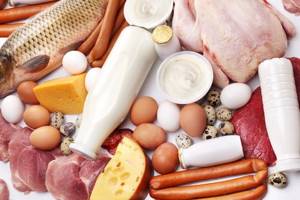
The way out of a 3-day fast includes the following:
- With the onset of day 4, preference should be given to juices. At first they need to be diluted, and in the evening you can drink them undiluted. You should drink a glass of liquid at a time.
- On day 2, you are allowed to cook buckwheat or oatmeal in water in the afternoon. The porridge is supplemented with boiled fruits and vegetables.
- In the following days, you will need to gradually switch to food that is usually on the table.
Some already eat carrot and cabbage salad on the first day. Thanks to such a dish, it is possible to get rid of the toxins remaining in the intestines. Sometimes breaking a three-day fast is accomplished with the help of fermented milk products (on the first day) and cottage cheese (on the second). The choice of option depends on the characteristics of the organism.
What is the procedure for a three-day fast?

Procedure for fasting
Those who are just starting to practice water fasting are advised to carefully select the days for this process. The first day can be at work, but the remaining two are better spent at home. With each fasting, the body will become more accustomed to this process, and after just a few procedures you will be able to practice fasting without interrupting the process at all. Let us note once again that it is strongly recommended that you do a one-day fast before a three-day fast; this will help you understand whether your body can cope with such a load.
Water fasting can be combined with dry fasting and there are even several ways:
- Drink liquid only on the first and third days of fasting;
- Liquids can only be drunk on the first day of fasting;
- For the first two days, do not consume food or liquid, and on the third day you can start drinking water.
Be sure to read: Does kefir with sugar work at night for weight loss?
Before dry fasting, despite the fact that it is very beneficial for the body, you should consult a doctor.
In order for water fasting to be effective, water must be consumed in sufficient quantities. Ideally, it will be spring water. Regular running water should be boiled. Mineral water can also be consumed, but only by mixing it with regular water in a 1/2 ratio.
Water should be drunk only in its pure form, without any additives. Otherwise, it will negatively affect the body. During fasting, you need to drink one glass of water at least once an hour, and the volume of water consumed per day should be at least 2 liters. Water helps the body get rid of toxins, so if you do not consume liquid in the right amount, the body simply cannot cope.
How many days can you live without food?
Despite the seemingly unambiguous nature of the proposed answer, there are different opinions on this matter. Some sources indicate that a person can live up to 2 months without food, provided they consume water. However, this indicator is influenced by various factors - climate, age, initial weight, health status, etc.
But this does not mean that after such a long hunger the body will be able to recover to its normal state. Scientists claim that after just a week without food, active destruction of muscle tissue begins, and after two weeks, tissue destruction of vital organs occurs. Therefore, fasting for 21 days, which some sources describe as a possible recovery option, can become deadly.
Important points
- You cannot practice this method if your temperature or blood pressure has increased, you have cold , or you feel unwell. It's better to wait for a more convenient time.
- If during fasting a person breaks down due to certain reasons, then it is worth postponing this process for a while and trying again later.
- If you experience a headache during hunger, you should not worry about it. As a rule, this symptom bothers you in the second half of the first day of abstinence from food and goes away on its own. But if the pain becomes unbearable, it is necessary to stop the fasting process.
- Dizziness are also considered normal symptoms . But these symptoms should not be very strong and debilitating. If this still happens, you should consult a doctor.
- During the period of abstinence from food, it is best to do something that arouses interest and brings pleasure. Light exercises are also recommended - yoga, Pilates, swimming. But you can’t overexert yourself.
- Under no circumstances should you starve uncontrollably. This mistake is often made by those who are trying to lose weight, and thereby seriously harm the body.
What will happen to you on each of the 3 days
Let us give you some perspective:
- Be strong - the hardest part is the first day. You will see food everywhere, and at the end of the day your stomach will begin to growl treacherously. Despite this, a hunger strike is easily tolerated; you can drink some water and fall asleep peacefully without remorse;
- The second day is the most difficult. You will wake up feeling wildly hungry, and everyone around you will make you irritated and angry. Therefore, avoid contact with loved ones if you do not want to quarrel with them for a long time;
- The third day can be characterized by only one word - apathy. That's all you will experience. In the morning, you won't want to get out of bed, and your vital signs and brain function will plummet. The only thing that can please you on this day is your own reflection in the mirror. You will see there a slender, fit girl with a clearly outlined oval face.
Whether to fast or not is your decision, and in the meantime we will show you reviews of girls who have tried fasting:
Vika, 29 years old
I decided to spend three days on the water. It was very difficult, but I liked the result: on the third day the bags under my eyes disappeared and I lost 2 kilograms!
Lena, 25 years old
I can’t believe it, but I survived three days of fasting! On the second day I wanted to give up everything, but I finally gathered my strength and completed the entire course. Now I want to try a five-day fast.
Here we come to the end. As you can see, fasting is quite a risky thing, but if done correctly it can give good results.
Rules to follow
In order for fasting to be successful, you need to follow a number of rules:
- A week before starting the diet, you need to start preparing your body. Namely, exclude alcoholic beverages, as well as fried and high-calorie foods from your diet.
- A very important point is to drink a lot of water, especially for those who previously consumed little liquid.
- Meals should be portioned, this will help the stomach narrow. Thanks to this, he will require less food during periods of shortage.
- Remove any provocateurs from your eyes so that you don’t even see or smell your favorite food, otherwise breakdowns await you.
- Try to sort out all your affairs before you start fasting. It is difficult for the body to cope with such a load during labor processes.
Many people advise cleaning your intestines before starting a fast. But follow this advice only at your own discretion.
Water fasting can only help you if you continue to take care of yourself after the diet. You will watch your diet, eat less junk food and engage in physical activity. In this case, the body will get stronger, and the body will become more attractive every day.
